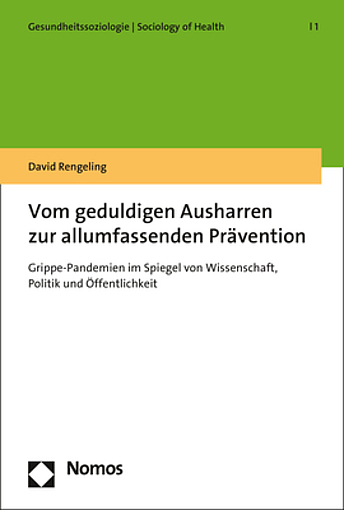englischThe 1918 flu pandemic lasted until 1920 and, depending on the discourse you read, resulted in the deaths of 25 to 100 million people. Subsequent pandemics had a far smaller mortality rate. Public awareness of a new, severe pandemic has increased exponentially since 1997. Billions have been spent to counter a catastrophe that has never emerged. Beyond the history of influenza that is already known, this book’s main focus lies on updating and remembering our knowledge of influenza since the end of the 1918 flu pandemic. Its primary thesis is that the perception of influenza and influenza pandemics is predisposed by discursive processes. These again are influenced by the memory of past influenza pandemics. Furthermore, these discursive processes have an impact on science, society and its awareness of the risk of influenza breaking out. This study offers the reader the opportunity to rethink how the general public perceives the risks posed by influenza and influenza pandemics, and how those risks are communicated to them.
Die Spanische Grippe von 1918–1920 forderte je nach Diskurs zwischen 25 und 100 Mio. Menschenleben. Nachfolgende Pandemien erreichten nicht annähernd diese Dimension. Ab 1997 wurde die Möglichkeit einer weiteren Influenza-Pandemie umfangreich kommuniziert. In der Folge wurden Milliardenbeträge mobilisiert, um dieser Bedrohung zu begegnen. Das befürchtete Großschadensereignis blieb indes aus. Neben einer historischen Betrachtung der Influenza wird der Reaktualisierung und Rememorierung des Themas Influenza seit dem Ausklingen der Spanischen Grippe nachgespürt. Die grundlegende These besteht darin, dass diskursive Prozesse die Wahrnehmung der Influenza prägen. Die Diskurse speisen sich aus den Erinnerungen an frühere Pandemien und beeinflussen sowohl die Wissensgenerierung zur Influenza als auch deren Risikowahrnehmung. Eine entsprechende Diskursanalyse bietet die Möglichkeit, die Risikowahrnehmung und Risikokommunikation für die Influenza grundsätzlich zu überdenken.


